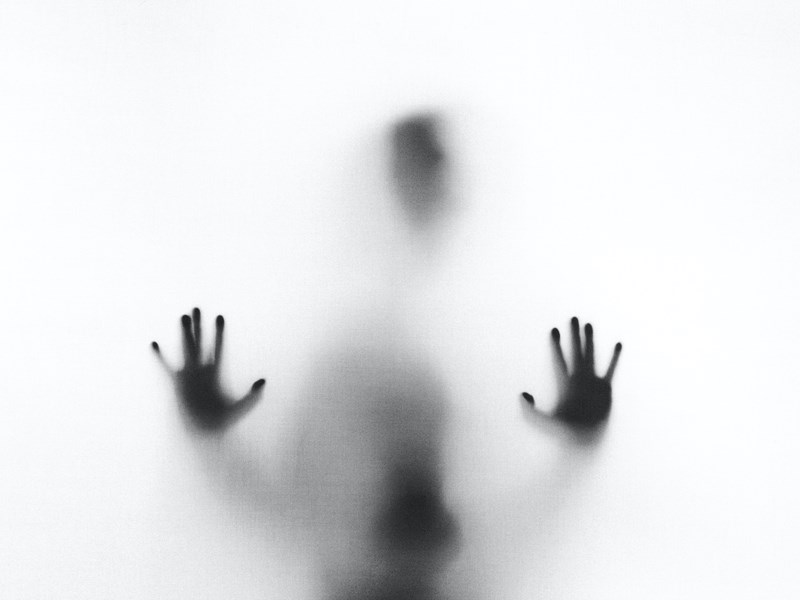Shadow Work and Tarot
Added at 18:16 on 07 September 2023
The term ‘Shadow Work’ is Jungian, coined by Carl Jung in relation to a form of psychotherapy that focused on the ‘Shadow Self’.
The Shadow Self is a term for the hidden aspect of our minds, the subconscious. Those parts of ourselves that are hidden from our conscious selves. We know they are there because we react to them, are triggered by them, and they direct our actions in certain circumstances. It’s the inner aspects of our personality, such as rage, envy, pride, resentment, greed, anger, our traumas, pains, losses, and expectations, and our sense of personal justice and injustice. T hose things that cause roadblocks to our happiness and progress in life.
hose things that cause roadblocks to our happiness and progress in life.
Being the shadow of the self, it is the dark side of us that can be seen with a light shone onto it, hence the word shadow. A whisp of our own reality, who we really are under the onion peel of beliefs about ourselves, our lives, and the world that make us up into the personality you present and from which the issues we have stem.
Shadow Work is a phrase that has crept into the world of tarot and simply means to look within. To deal with your issues, your past, your gremlins, and whatnots, those issues that reside within the subconscious and which then get in our way, sometimes consciously but mostly subconsciously, so we have no or little idea as to why we do what we do to self-sabotage things within our lives. The aim is to make them conscious—known to the self.
The past factors greatly, and how it manifests resides within the present and where it will take us if healed or unhealed. Yet often we do not know what the ‘shadows’ are, as we do not know what is often stored within the subconscious. Even if we catch glimpses of our unresolved parts, we may not see the whole picture or even understand the bits we do see. At times, they can subtlety take the steering wheel, and others just erupt and crash the car. When we try to ignore our shadows, our inner gremlins can often shout loudly and cause a lot of upset, as they seem unfathomable as we cannot see the ‘why’ behind our own actions, reactions, or desires.
If you can imagine the subconscious mind as files within filing cabinets, some of the cabinets are locked and some have no key; some of the files are hidden at the back, in the wrong place; some we cannot open even though we can see them; some are invisible; some we do not know are there; some have only some of the information; etc. It’s these files that run the show.
The damaged parts of ourselves can be placed there, within a file, by experience, trauma, taught beliefs, the expectations of others imposed on us even when done with love, our own failed hopes and wishes—anything that, from birth, adds feelings of loss, pain, rejection, abuse, isolation, etc. to ourselves and adds to those files, which are then labelled in the filing cabinet, and titles them with things our minds bury deep.
Each other experience we go through that links to something in a file adds to it, so some files grow very large, and the original reason can get lost in time and mind. As files grow, it acts as proof that this ‘thing’ is a fact. In time, those files can become beliefs, known or unknown to us, and they create how you view the world.
A file is a programme that gives a map of how life is, even if you wish to have it different. When these files, programmes, and shadows present hurdles that we cannot navigate, they cause us to hijack our own happiness and disrupt what we want.
As a lot of issues are laid down in early childhood, as we lack the emotional intelligence to understand issues, issues get pushed aside, accepted as facts, or just confused, and so that is added to the files and defines them, and like mental tin cans on a string, we drag them behind us so that we cannot hear anything else, even though others can, throughout the entirety of our lives or until recognised. Often, we find that we can see other people’s inner demons better than our own, even though ours are in charge of all that we do.
When it comes to using tarot, or any form of psychological tool, or spiritual work and the ‘Shadow self’, people ask, “How do we look at it?”, “How do we seek to see the shadow self?”
In truth, you do it any time you ask a question about who you are, where you are, or how things can change, as all the questions you ask, whatever they are, stem from your needs. Your needs stem from your wishes for yourself and what you fear losing or wish to gain, and that all stems from your subconscious, your programming, which has been set in place by all of what you’ve experienced.
To work on ourselves, we gain self-awareness. All things improve, from our mental and emotional health to our physical health, when done well. Relationships of all kinds improve, and some even end. We come into alignment with who we can be. We start to love ourselves more, understand our inner demons, make friends with them, and find peace. We show compassion to ourselves, as it gives us room to mature and grow. Yet we must understand that, as we are looking at the self through the lens of the self, we can feed ourselves a whole lot of bullplop if we are not careful, as we are viewing the self through our own lens. Which is the problem in the first place.
Tarot themselves are a subconscious tool, as are your shadows. If you take away the 'fortune teller' aspect that some cannot look beyond, and even then, all you ask stems from within you. In a way, you cannot do Shadow Work when you do tarot; at heart, it is just therapy. From the very first question you asked the tarot about yourself, you’ve been doing Shadow Work.
When we do such with tarot, it can be enlightening, ouchy, or even confusing, as we do not wish to see. A lack of knowledge of the cards can cause confusion, as can ego if it is not ready to see what is hidden at the back of the filing cabinet.
When it comes to what tarot spread to use? any will do. You just need to go Hanged Man about things and look at the whole issue from a new perspective. If each reading you do for yourself is treated as a window into yourself, then all tarot is Shadow Work, as mentioned.
Adding an Advice card to each spread can give you a glimpse of what is within, as you’re asking what advice you have for me with 'X' situation, this issue, or this question, and at times it can show something very different than what you’re wishing for.
Keep it simple. Shadow work is not something mystical; it’s psychological, and it needs nothing more than a wish to go within, and the Tarot is a perfect tool for that. Any tool that means that you look within is fantastic; find one that gels with you. Meditation is a favourite of mine, paired with Tarot.


